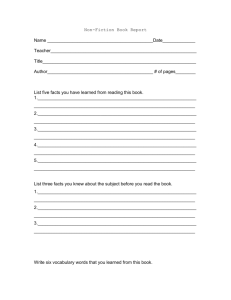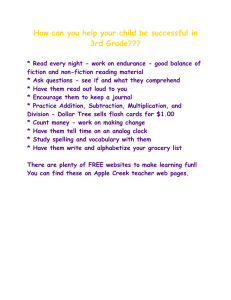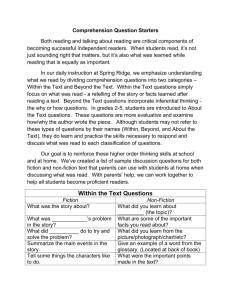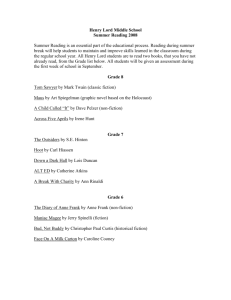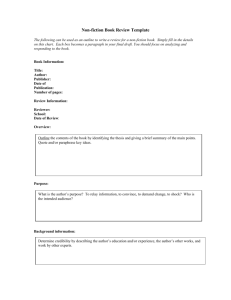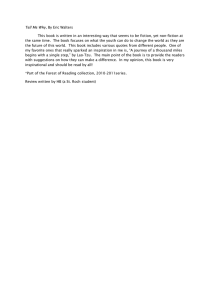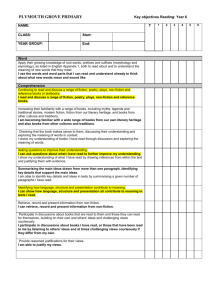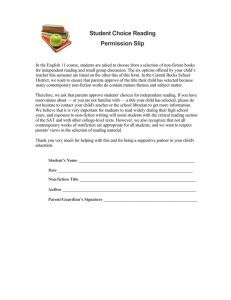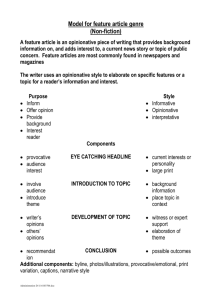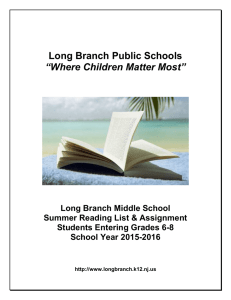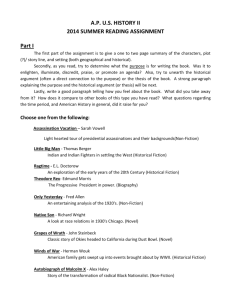How to Write a Book Report (Middle and High School level)
advertisement
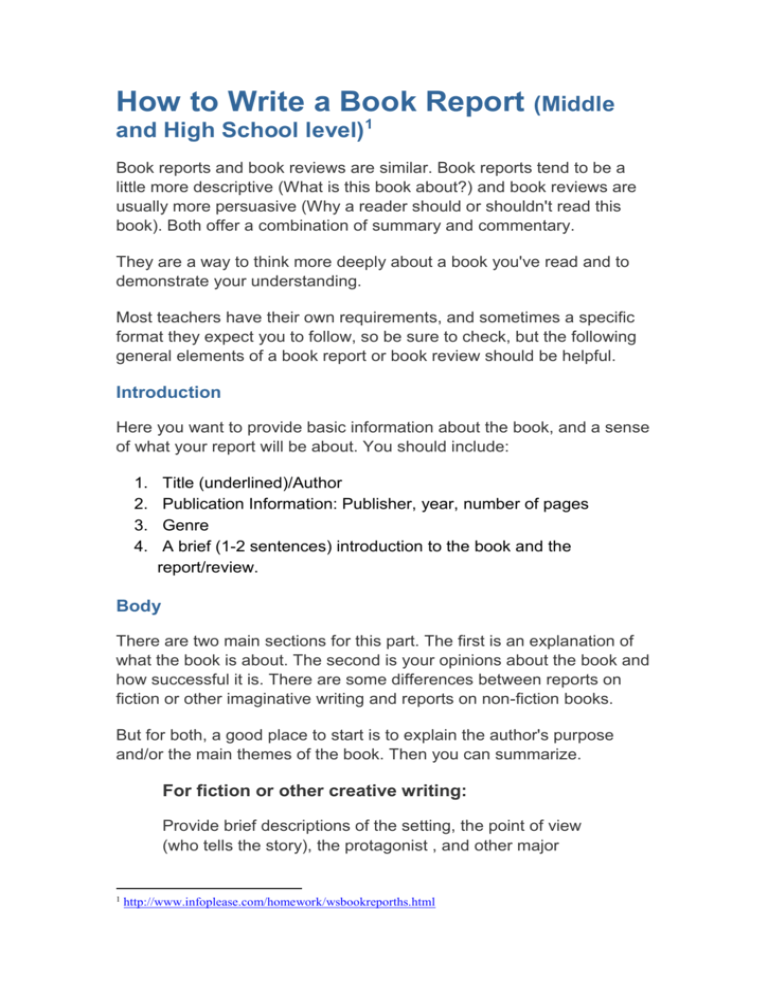
How to Write a Book Report (Middle and High School level)1 Book reports and book reviews are similar. Book reports tend to be a little more descriptive (What is this book about?) and book reviews are usually more persuasive (Why a reader should or shouldn't read this book). Both offer a combination of summary and commentary. They are a way to think more deeply about a book you've read and to demonstrate your understanding. Most teachers have their own requirements, and sometimes a specific format they expect you to follow, so be sure to check, but the following general elements of a book report or book review should be helpful. Introduction Here you want to provide basic information about the book, and a sense of what your report will be about. You should include: 1. 2. 3. 4. Title (underlined)/Author Publication Information: Publisher, year, number of pages Genre A brief (1-2 sentences) introduction to the book and the report/review. Body There are two main sections for this part. The first is an explanation of what the book is about. The second is your opinions about the book and how successful it is. There are some differences between reports on fiction or other imaginative writing and reports on non-fiction books. But for both, a good place to start is to explain the author's purpose and/or the main themes of the book. Then you can summarize. For fiction or other creative writing: Provide brief descriptions of the setting, the point of view (who tells the story), the protagonist , and other major 1 http://www.infoplease.com/homework/wsbookreporths.html characters. If there is a distinct mood or tone, discuss that as well. Give a concise plot summary. Along with the sequence of major events, you may want to discuss the book's climax and resolution, and/or literary devices such as foreshadowing. But, if you are writing a review, be careful not to give away important plot details or the ending. For non-fiction: Provide a general overview of the author's topic, main points, and argument. What is the thesis? What are the important conclusions? Don't try to summarize each chapter or every angle. Choose the ones that are most significant and interesting to you. Analysis and Evaluation In this section you analyze or critique the book. You can write about your own opinions; just be sure that you explain and support them with examples. Some questions you might want to consider: Did the author achieve his or her purpose? Is the writing effective, powerful, difficult, beautiful? What are the strengths and weaknesss of the book? For non-fiction, what are the author's qualifications to write about the subject? Do you agree with the author's arguments and conclusions? What is your overall response to the book? Did you find it interesting, moving, dull? Would you recommend it to others? Why or why not? Conclusion Briefly conclude by pulling your thoughts together. You may want to say what impression the book left you with, or emphasize what you want your reader to know about it.
